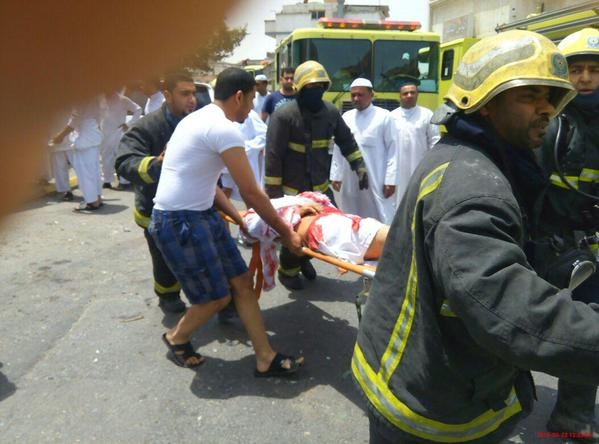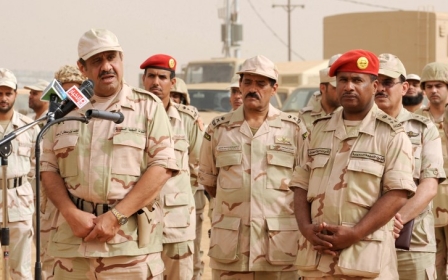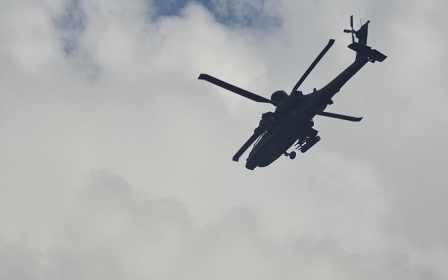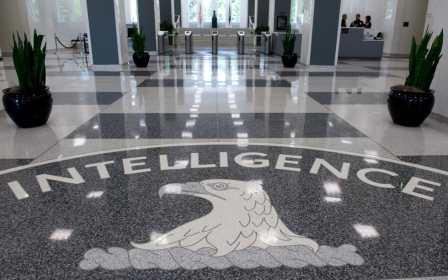Islamic State claims deadly suicide attack on mosque in Saudi Arabia's Qatif

Islamic State (IS) have claimed a suicide attack on a mosque in Saudi Arabia's Qatif governorate that killed at least 20 people and injured 70, according to local reports.
In a statement released on social media, an affiliate calling themselves Wilayat Najd (Najd Province) claimed responsibility for the attack, naming the perpetrator as Abu Amer al-Najdi.
Witnesses told Middle East Eye a sole suicide bomber entered the Imam Ali mosque in the village of Qadih on Friday during prayers and detonated his explosives. A person who was in the mosque at the time of the attack said there were "tens" of victims and that those injured in the blast were being transferred to local hospitals.
Local newspaper Al-Sharq reported that at least 20 people had been confirmed as killed. The death toll is expected to rise, as many of those injured are said to be in a serious condition.
Qadih is a village in Saudi Arabia's Eastern Province, which is home to the country's Shia minority.
An eyewitness to the attack, who was praying in the mosque, said "there was a flash of light" then "bodies were flying everywhere". They said around 200 people were praying at the mosque when the attack happened.
“I counted around 30 bodies carried out from the mosque. I think 15 percent of them were already dead," the local resident said, asking to remain anonymous.
The death toll has not been confirmed and dozens of injured people have been transferred to local hospitals.
Video footage sent to Middle East Eye showed the aftermath of the attack.
Saudi Arabia's Interior Ministry confirmed the attack and said an investigation has been opened into the incident.
Local residents told Middle East Eye that armoured vehicles have arrived in Qadih but that they were not welcomed by villagers.
"People are angry the security vehicles have turned up. They shouted ‘get out from our village, because you have caused this. You don’t make our city safe,'" one resident said, asking to remain anonymous.
"The security forces are usually here to attack us. They don't protect us."
Qatif has long been the scene of regular protests by the Shia community, who complain of government discrimination.
Residents said that since Saudi Arabia launched military operations in Yemen, aimed at pushing back Shia Houthi rebels, sectarian sentiment has increased in the kingdom's local media outlets.
The bomber has not yet been identified, however, locals were quick to blame the attack on having been inspired by Wahhabism, an ultra-conservative brand of Sunni Islam endorsed by the Saudi state.
“This attack was carried out by a Takfiri, for sure," a resident said, using the term for when a Muslim accuses another Muslim of apostacy. It is commonly used to describe groups including the IS.
"The attacker will no doubt have been a follower of the Wahhabi ideology."
In November eight people were killed by gunmen in the Ahsa region of the Eastern Province. More than 75 people were arrested in connection with that attack, which Saudi authorities said had been carried out by the Islamic State group.
Middle East Eye propose une couverture et une analyse indépendantes et incomparables du Moyen-Orient, de l’Afrique du Nord et d’autres régions du monde. Pour en savoir plus sur la reprise de ce contenu et les frais qui s’appliquent, veuillez remplir ce formulaire [en anglais]. Pour en savoir plus sur MEE, cliquez ici [en anglais].




